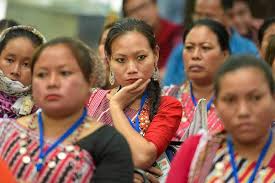Article 244(A) of the Constitution allows for the creation of autonomous states within the existing states of India. This provision grants regions within a state a certain degree of self-governance, including the establishment of their own legislature or council of ministers. In the context of Diphu Lok Sabha constituency in Assam, the implementation of Article 244(A) is crucial due to historical demands for autonomy from the tribal communities in the region.
Background of Diphu Lok Sabha Constituency
Diphu Lok Sabha constituency is predominantly inhabited by tribal communities and is reserved for Scheduled Tribes (STs). It encompasses six legislative Assembly segments across three hill districts of Assam: Karbi Anglong, West Karbi Anglong, and Dima Hasao.
The Sixth Schedule and Autonomous Councils
The regions within Diphu constituency are governed under the provisions of the Sixth Schedule of the Constitution, which outlines the administration of tribal areas in specific states, including Assam. The area is overseen by two autonomous councils: the Karbi Anglong Autonomous Council (KAAC) and the North Cachar Hills Autonomous Council.
Historical Context and Demand for Autonomy
The demand for autonomy in the region dates back to the 1950s and has been a significant aspect of local politics. Article 244(A) offers a pathway for greater self-governance beyond the existing provisions of the Sixth Schedule.
Current Political Landscape
Despite promises from various political parties regarding the implementation of Article 244(A), progress has been limited. The BJP, which currently holds all Assembly segments in Diphu, has emphasized this issue in its campaigns. However, concerns remain about the lack of concrete action toward achieving autonomy for the region.
Multiple-Choice Questions (MCQs):
- What does Article 244(A) of the Constitution allow?
- A) Establishment of autonomous states within existing states
- B) Reservation of seats for Scheduled Tribes
- C) Formation of separate states within India
- D) None of the above
- Answer: A) Establishment of autonomous states within existing states
- Which councils oversee the administration of tribal areas in the Diphu constituency?
- A) Karbi Anglong Tribal Council
- B) Assam Tribal Development Council
- C) Karbi Anglong Autonomous Council (KAAC) and North Cachar Hills Autonomous Council
- D) None of the above
- Answer: C) Karbi Anglong Autonomous Council (KAAC) and North Cachar Hills Autonomous Council
- When was Article 244(A) inserted into the Constitution?
- A) 1950
- B) 1969
- C) 1972
- D) 1995
- Answer: B) 1969
- Which political party currently holds all Assembly segments in the Diphu constituency?
- A) Congress
- B) BJP
- C) ASDC
- D) None of the above
- Answer: B) BJP
